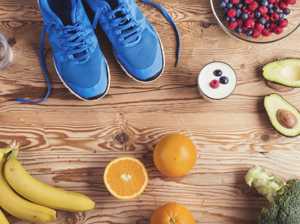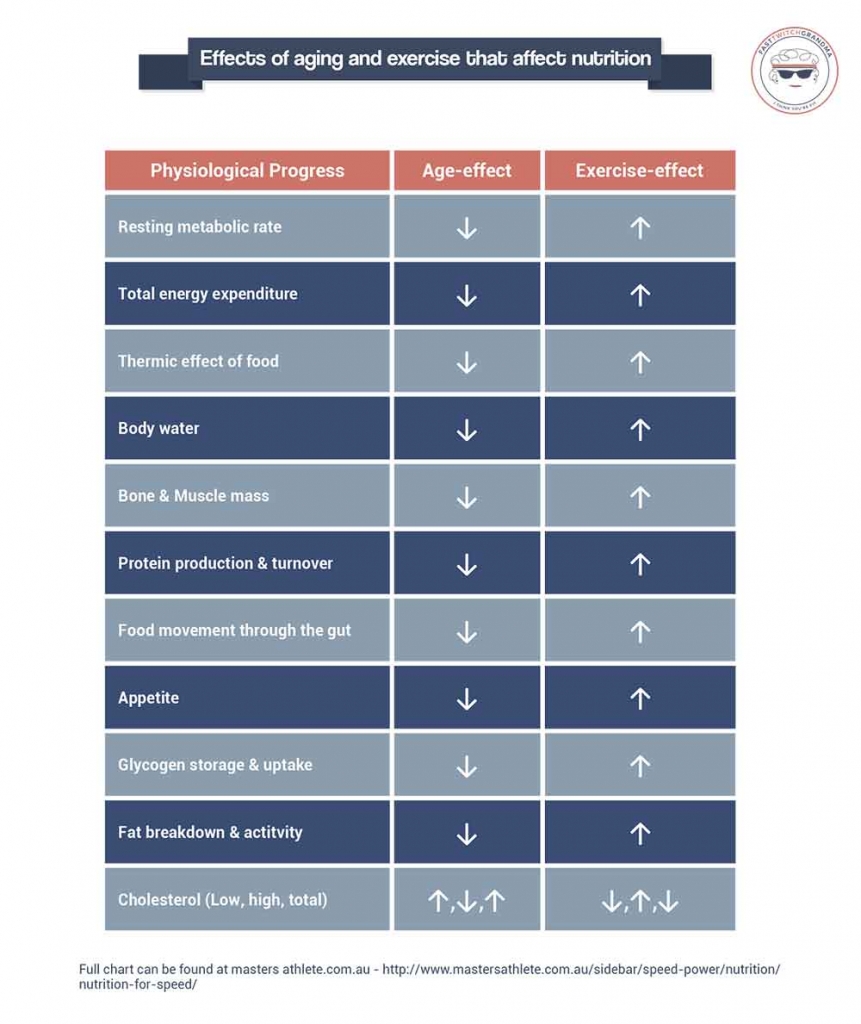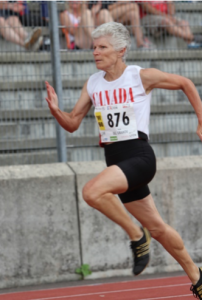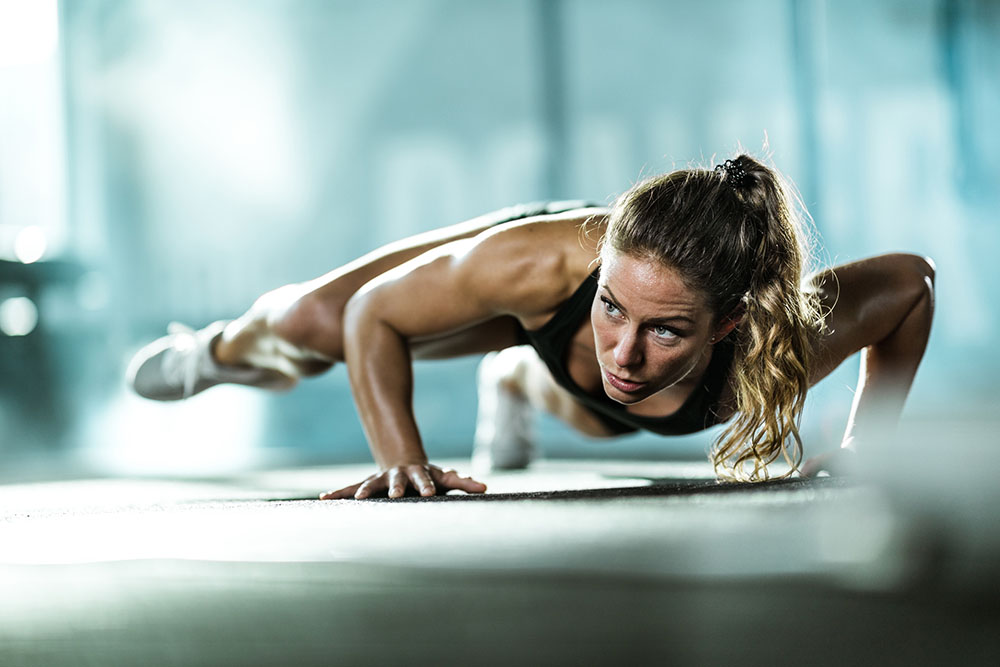Do Masters Athletes Need Specific Nutrition?


Evan Stevens
Nutrition.
It’s a topic that stirs debate at every mention. One day you can look in the newspaper and see an article discussing the benefits of high protein diets on weight loss, the next will have an article saying that high protein diets can cause kidney damage.
You bump into someone who is a passionate vegan and has to tell you all about the benefits of a pure plant-based diet and the next person you bump into and the very next person could tell you how a paleo diet rich in meats is actually beneficial. There is a lot of misinformation and sensationalizing scientific findings which can make it confusing and difficult to truly comprehend what exactly it is we should be eating. This becomes even more confusing as we reach into the realm of athleticism, where proper nutrition can be the deciding factor in the outcome of a competition, or even just being able to head out the door the next day following the previous evening’s workout that the coach tortured you with. To add even more of a complication, what does this all mean when we get older and into masters athletics?
Nutrition For All Ages
We know nutrition is a highly contentious topic with lots of different schools of thought. Sensationalizing recent scientific findings is the norm with new fad diets popping up overnight as the latest flavor of the week. It is difficult for us as aging athletes to really get a read on what we should be doing to help ourselves train, compete, and recover as best we can. But fear not, for there is an answer, and it is far simpler than you might expect.
Eat And Train
The key to understanding nutrition for masters athletes is to understand nutrition for athletes of all ages – they are nearly identical. This is because we, as athletes, eat and train as opposed to the regular population who diet and exercise. Athlete nutrition is separate from the general population because our requirements are different – we want to be at peak fitness for competition, not just to fit into a bikini or conform to some specific media notion of beauty. It is true, that as we age we lose the ability to digest and absorb certain amounts macro- and micronutrients as well as we used to, which is why some people can get diseases and maladies related to malabsorption.
Related Article: Exercise and Digestive Health
B12, a key vitamin needed for red blood cell creation is often low due to a decrease in certain digestive enzymes as well as changes to the kinds of bacteria that live in our gut -both of which are needed to release B12 from food items and ensure that bad bacteria don’t get first dibs on the B12 in our food. Calcium, Iron, Zinc, and Vitamin D are important micronutrients for bone health which are poorly absorbed as we age because of similar physiological changes.
For masters athletes, however, these tend to be much more of a moot point – exercise actually halts these changes! High intensity training in which masters athletes partake, halt or attenuate the ageing process and means that masters athletes have nearly the same nutritional needs as their younger counterparts. To further demonstrate the just how powerful exercise is at attenuating ageing, here is a chart that shows some of the effects of ageing against the effects of exercise on certain physiological processes.

Full chart can be found at mastersathlete.com.au – http://www.mastersathlete.com.au/sidebar/speed-power/nutrition/nutrition-for-speed/
 If there are few if any differences in nutritional needs for masters athletes compared to their younger peers, then the real difficulty lies in describing just what proper nutrition is for athletes in the first place. While optimizing performance will always be an area of study and debate, there are still some guidelines we can follow, at this point at least, that should be followed to achieve proper nutrition for athletes. Each sport and event group is going to have some nuances and specifics due to what the athlete’s specific sport requires, but these general guidelines are the best place to start.
If there are few if any differences in nutritional needs for masters athletes compared to their younger peers, then the real difficulty lies in describing just what proper nutrition is for athletes in the first place. While optimizing performance will always be an area of study and debate, there are still some guidelines we can follow, at this point at least, that should be followed to achieve proper nutrition for athletes. Each sport and event group is going to have some nuances and specifics due to what the athlete’s specific sport requires, but these general guidelines are the best place to start.
Carbohydrates
Carbohydrates (CHOs) are our main energy source. Just like our younger peers, masters athletes retain our ability to utilize glycogen during exercise and rebuild and store it after exercise. Generally, athletes will have 5-7 grams per kilogram bodyweight per day (g/kg/d) during base season/general fitness exercises and 7-10 g/kg/d for more intense training. Endurance athletes may need a little more, towards the higher end at 10 g/kg/d due to the need for prolonged energy requirements compared to their speed/power counterparts. Vegetables, fruits, nuts and seeds, whole grains (not whole wheat), lentils, barley, squash, beans and other legumes area ll going to sources of nutrient dense carbohydrates.
Fats
While fats are energy dense, they are typically a huge part of most athlete’s needs simply because they are stored in areas of the body where blood flow is diverted during work. Blood goes away from fat storage and towards working muscles during exercise at higher intensity so fats don’t come into play much as an energy source.
Where they DO come into play is ensuring that joints remain healthy by reducing the amount of inflammatory enzymes that erode cartilage. Specifically, your essential fatty acids – omega-3 and -6 fatty acids or Docosahexaenoic acid and Eicosapentaenoic acid, and Linoleic acids. These are fatty acids that the body cannot synthesize itself and thus needs to come from an external source (from what we eat).
Healthy fats should make up roughly 20-30% of your overall diet, and you should be getting between 1.6 g/day and 1.1/day of essential fatty acids. More for joint health and inflammation than energy if anything. Wild caught fish, grass-fed beef, eggs, nuts and seeds, dark chocolate, chia seeds, ground flax – all great sources of fat and essential fatty acids that you want to include in your diet. Stay away from any farm-raised fish (low in essential fatty acids), corn-fed meats (again, low in essential fatty acids, less lean).
Related Article: Fat, Carbs, Protein And Recovery. Is There A Silver Bullet?
Protein
Protein ensures that our muscles are strong and can be rebuilt and recover after a workout. And while it is important for younger athletes, it is the one area where older athletes need a bit more than their younger peers. Where it was once believed that protein could be damaging to Kidneys, this was found to only be true in very specific diseased subsections of the population (those already suffering from kidney problems) – basically if you are fit it won’t hurt you. In fact, recent data supports protein supplementation improving bone health as it helps calcium and vitamin D absorption and transport within your body. Endurance athletes should try to achieve 1.2 – 1.4g/kg/day intake and sprinters and throwers (resistance and power athletes) should aim for as much as 1.7g/kg/day to facilitate muscle growth and repair.
As we age one of the biggest issues is muscle wasting, also called sarcopenia. Exercise and protein intake can help to arrest this process. Taking a protein drink within 30 minutes of your workout as part of your post work-out recovery protocol is going to help with your muscle recovery and growth. Any 100% hey protein isolate is going to do the trick – just ensure that it isn’t a mix of other proteins (hence the 100% whey isolate) and isn’t too high in other additives such as caffeine or other supposed “performance enhancers.
Related Article: Protein Intake For Masters Athletes
Hydration
Hydration is another area that masters athletes have slightly different needs than younger athletes. Physiological changes to thirst sensations, as well as disrupted renal function in the kidney (increased fluid output) and poorer thermoregulation (increased sweating and altered electrolyte balance), masters athletes need to be more careful with their hydration status, at least initially.
As you get fitter, these all get closer to “normal” or the age effects are attenuated by the exercise effects, as shown by the chart shown above. Being well hydrated through the 24 hours before a training session and adequate water intake during (6-12 ounces every 15-20 minutes) can ensure that the body remains hydrated and functioning at peak efficiency. Water can be supplemented with an electrolyte drink such as Gatorade during hotter weather or more strenuous sessions. Just be aware that these drinks can be too concentrated with sugars and electrolytes and can cause some bowel issues. Best to water them down a bit before use – if using the powder use half a scoop instead of a full one, if going with the pre-packaged bottle split the bottle in two servings and go half with your electrolyte and half water.
So there are the basics of master nutrition. There really isn’t much of a difference between a masters athlete and a younger one, maybe a bit more protein after their workouts, maybe a bit more water. But they should be relatively the same. Exercise plays a huge role in arresting a lot of the ageing processes which means that physiologically there is going to be fewer differences between masters athletes and their younger counterparts. We will talk further in coming articles about how best to maximize your nutrition as an athlete and how to best prepare, perform, and recover regardless of age.
Related Article: 6 Ways To Avoid Hunger That Leads To Overeating
You Might Like:
Walking After Eating: An Effective Way to Manage Blood Sugar
Over the last few years, Type II diabetes has become one of the biggest health concerns on the planet. Typified by an inability to correctly manage your blood sugar levels, it can have deleterious health...What Is the Hype About Antinutrients and Are They Harmful?
Ask and they will agree that fruits and vegetables are some of the healthiest foods on the planet – and for the most part, they would be right. They are full of vitamins and minerals,...The World’s Most Powerful Antioxidant: Glutathione
Over the last couple of years Glutathione has made a bit of splash in the supplement industry, where it has been touted as one of the most powerful products to hit the market in years....BCAAs (branched-chain amino acids): What You Need to Know
There are thousands of different supplements available for your consumption – all of which promise the world (many of which, unfortunately, fail to deliver on that promise). One supplement that has become a mainstay in...Intermittent Fasting and Running
Intermittent fasting has quickly become one of the most popular dietary strategies of the decade. Over the last few years, it has evolved from a niche topic into something that everyone is doing. And with...3 Vitamins to Boost Your Immune System Now
Given the impact that coronavirus is having on our society, I thought it would be a great time to provide some useful information that can have a positive effect on your immune system. And no,...Citations
American Dietetic Association (ADA), Dietitians of Canada (DC) and the American College of Sports Medicine (ACSM). 2009. Position of the American Dietetic Association, Dietitians of Canada, and the American College of Sports Medicine: Nutrition and athletic performance. Journal of the American Dietetic Association, 109 (3), 509–27.
Baik HW and Russell RW. Vitamin B12 Deficiency in the Elderly. Annual Review of Nutrition 1999 19:1, 357-377
Chodzko-Zajko WJ, Proctor DN, Fiatarone Singh MA, et al. American College of Sports Medicine. American College of Sports Medicine position stand. Exercise and physical activity for older adults. Med Sci Sports Exerc. 2009;41(7):1510-30.
Louis J, Hausswirth C, Bieuzen F, Brisswalter J. Muscle strength and metabolism in master athletes. Int J Sports Med. 2009;30:754-9
Paddon-Jones D, Short KR, Campbell WW, Volpi E, Wolfe RR. Role of dietary protein in the sarcopenia of aging. Am J Clin Nutr. 2008;87(5):1562S-66S
Phillips, S. and Van Loon, L. (2011). Dietary protein for athletes: From requirements to optimum adaptation. Journal of Sports Sciences, 29(sup1), pp.S29-S38.













